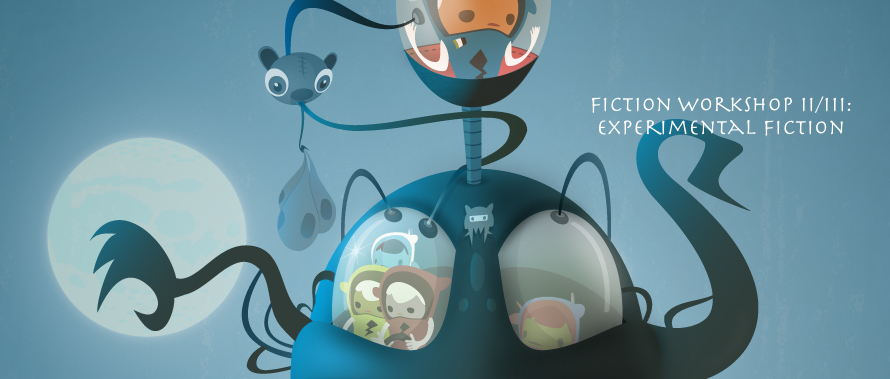Experimental Fiction Prompt 2
Below is another exercise I gave my students in Experimental Fiction.
—
Paired with reading “Pee on Water,” by Rachel Glaser
A story that takes as its subject the history of the universe leading up to humankind’s “pee on water” might evoke Genesis for some people. “Pee on Water” is, in some sense, in the tradition of creation stories, though the emphasis on peeing on water, coolness, and contraception, might make us wonder what is actually being created, in the end. In other words, the story takes on one of the oldest story traditions in many cultures, while updating it and interpreting its task, and while playing with language in a way that draws attention to the creation of sentences themselves.
Genesis might, in fact, serve as interesting example, since to many people in this country it is both a story and a history. This should remind us that Western literature had its beginnings in history. Or that Western history had its beginnings in literature. Homer’s Iliad was both a capital s Story and a source of history. I’m not entirely clear on how much people thought of the story as accurate and how much they accepted that it was made up, but the line seems, most interestingly, blurred. (That blur might have something to do with religion, but this is not an issue for this class, perhaps.) In other words, the Iliad was an interpretation but also an account of history, interpreted simply because humans could not truly know what gods were thinking and doing, only that they had some kind of role. One might call this “myth,” but the Iliad is different from myth, as plays like Oedipus Rex and so forth—it is the crafting of them by a particular writer, perhaps, that might allow us to call them, broadly, “fiction,” or, as the Greeks would call them, “poetry.”
On the other hand, in the East, fiction began fairly explicitly as subversive with regard to history. In ancient China, history was official record, and fiction was the stories told by normal people, often to hold onto stories that resisted the official record and were known among the people as what “really” happened. Rumor, in other words–which, as an aside, we talk about in Asian American literature (e.g. in Dogeaters, by Jessica Hagedorn) for which resistance is also part of the tradition of literature versus official history. (In fact, this may be often the case with literature written by marginalized people, who have to contend with the more “official” narratives of dominant culture.)
Glaser, here, is both subverting a kind of official tradition of the creation story and advocating for a different official story (evolution), while keeping both at an ironic distance. A creation story reveals what is being created, and what is important to create, and who creates, for whom. Glaser’s focus on pee on water, coolness, and contraception (ironically) deems these things important to humans and emphasizes how humans have changed creation from evolution to invention. Glaser also subverts the kind of language (and perspective) usually used for creation stories, which is either grandiose/mythic or scientific/academic. Her playing with language might be seen as a way of drawing attention to language, which of course is another creation/invention of humans, and which grants her the ability to tell this story and to poke fun at the way creation stories are told.
Your exercise for this week is to write a creation story for the universe, while thinking about what is being created and for whom and why. What is important in the creation? What is its end goal? Pee on water? Worship? Capitalism? Do this without any real characters, as Glaser has done (excerpt for an implied narrator), and also include a kind of chorus or refrain (like where people pee or “God saw that it was good”). Think carefully about what tradition you uphold and what traditions you defy and what your experimentation means about what you think is important about the history of the universe. One last question to ask is: who is telling this story? That’s something not immediately obvious in Glaser’s story (she says in interviews that it is a teenage girl), and that greatly affects and yet is sometimes only implied in other creation stories. What is the teller’s purpose? What is the purpose of a creation story?

